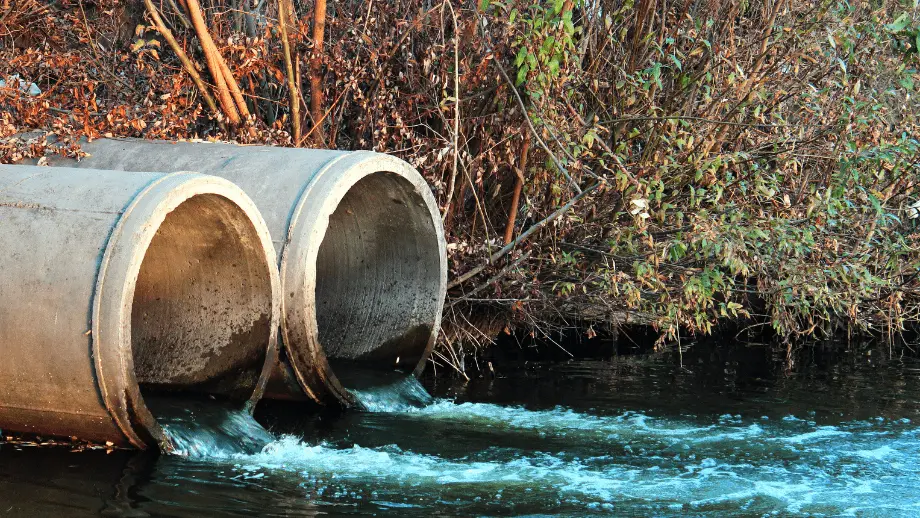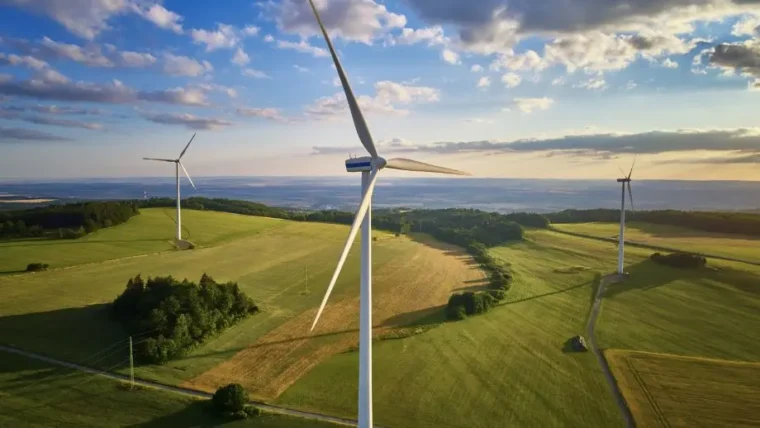Fortnightly Bulletin – 29th August 2022
31 August 2022

Legal Updates
The United Kingdom Internal Market Act 2020 (Exclusions from Market Access Principles: Single-Use Plastics) Regulations 2022
These regulations amended the United Kingdom Internal Market Act 2020, on the 11th August 2022.
Schedule 1 of the United Kingdom Internal Market Act 2020 excludes certain products from market access principle within the UK. Amendments by the 2022 Regulations exclude a range of single-use plastic items including plastic straws, cotton buds, drink stirrers, plates, cutlery or chopsticks, balloon sticks and food containers, and drink containers or cups made wholly or partly from expanded or extruded polystyrene.
The market access principles will not apply to these items, prohibiting the sale of these items in any part of the UK.
The regulations apply across the UK.
Access to this legislation can be found here.
Establishing the Best Available Techniques for the UK (UK BAT)
This policy paper was published on the 30th August 2022.
Industrial installations with specific types of activity must use Best Available Techniques (BAT) to prevent and reduce emissions to air, water and land. Techniques include:
- the technology used
- how your installation is designed, built, maintained, operated and decommissioned
BAT was adopted and applied across the European Union (EU) as BAT Conclusions (BATC) under the IED (Directive 2010/75/EU). Existing EU BATC continue to have effect in the UK through the EU Withdrawal Act 2018 and are available in best available technique reference documents or BREFS. The UK no longer needs to meet the requirements of any new EU BATC.
The UK BAT system will be the mechanism by which the techniques can be established through an evidence-led, collaborative approach by technical working groups (TWG) for the relevant industrial sectors. The development of UK BATC will be led by the UK Government, Scottish Government, Welsh Government and Northern Ireland Department for Agriculture, Environment and Rural Affairs (DAERA).
When the BATC is agreed it will be published as statutory instruments and used as the basis for permit conditions for industry.
The first 4 industry sectors to establish BATC groups will be:
- Ferrous metal processing – galvanising (FMPG).
- Ferrous metals processing – forming (FMPF).
- Textiles (TXT).
- Waste gas treatment in the chemicals sector (WGC).
The TWG’s will be established from September 2022. It is anticipated that the BATC for the industry sectors above will be published in the second half of 2023.
Access to this policy paper can be found here.
Guidance
Classifying Portable and Industrial Batteries
This guidance explains the definitions of, and how to classify, the battery types under the:
- Batteries and Accumulators (Placing on the Market) Regulations 2008
- Waste Batteries and Accumulators Regulations 2009 – England only
Guidance has been updated to clarify the definition of each type of battery, including adding more examples.
The guidance can be accessed here.
Workplace Charging Scheme: Guidance for Applicants
The Workplace Charging Scheme (WCS) is a voucher-based scheme that provides eligible applicants with support towards the upfront costs of the purchase and installation of electric vehicle charge points.
The guidance sets out what the WCS is, the eligibility criteria for the applicant organisations – any eligible business, charity or public sector organisation that declares an existing or future need for charging infrastructure – and how to apply.
This guidance has been updated regarding staff and/or fleet parking; local residents are able to use the charge points outside of office hours when they will not typically be used by staff or fleet vehicles.
This updated guidance can found here.
Great Crested Newts: District Level Licensing Schemes For Developers
Guidance has been published for developers, on how to join a district level licensing scheme to develop land that may affect great crested newts.
If a district level licensing scheme does not operate in their area, they must apply for a mitigation licence to carry out work that affects great crested newts.
Guidance is also available on district level licensing schemes for local planning authorities.
Guidance has been updated regarding the renewal of licences; license renewals must be requested at least one month before it expires.
This guidance can be accessed here.
Articles of Interest
Government Propose £56bn Investment From Water Companies to Prevent Sewage Discharges
On the 26th August 2022, the Department for Environment, Food and Rural Affairs published a Storm Overflows Discharge Reduction Plan and opened consultations on the key measures.
One requirement within the Plan is for all water companies to significantly reduce, and improve the quality of, all storm overflows discharging into or near designated bathing water by 2035.
Water companies would also be required to improve three-quarters of the overflows discharging into nature sites classed as high-priority by 2035, and all other overflows by 2050.
To enable the tracking of progress, the Plan sets out a commitment for all overflows to have working monitors installed by the end of 2023.
Defra stated:
“Overflows that are causing the most harm will be addressed first to make the biggest difference as quickly as possible, and water companies will be expected to consider nature-based solutions in their planning”
The Plan states that water companies will collectively need to invest £56bn in monitoring, infrastructure, process changes and skills needed to reduce sewage pollution through to 2050. Costs must not be passed on to domestic customers at a rate of more than £1 extra per month for the first five years.
The Plan also proposes several changes to the rights of water firms, how the sector should be regulated, and what governance mechanisms companies should bring in. For example, discussing the possibility of removing mechanisms which give property developers the automatic right to connect to sewer networks which can result in sewer networks being overwhelmed.
Additional proposals include the possibility of setting new standards for developers regarding sustainable drainage systems.
Responses to the Plan have been mixed, with Defra calling the targets the “toughest ever”, whilst Labour’s Jim McMahon, the shadow Environment Secretary, said it is “neither a plan, nor does it eliminate sewage dumping into our natural environment”.
Access to the full article can be found here.
Sale of Horticultural Peat to be Banned in Move to Protect England’s Precious Peatlands
On the 27th August 2022, the Government announced that all sales of peat to amateur gardeners in England will be banned by 2040.
Peatlands are the UK’s largest carbon store but only approximately 13% of our peatlands are in a near-natural state. This degradation has occurred due to drainage for agricultural use, overgrazing and burning, as well as extraction for use in growing media. Bagged retail growing media accounts for 70% of the peat sold in the UK and is frequently misused, for example being used as a soil improver rather than a medium in which to propagate plants.
When the extraction of peat takes place, the carbon stored inside the bog is released as carbon dioxide, contributing to climate change. Peat extraction also degrades the state of the wider peatland landscape, damaging habitats for some of our rarest wildlife such as the swallowtail butterfly, hen harriers and short-eared owls, and negatively impacting peat’s ability to prevent flooding and filter water.
The measures announced will contribute to efforts to achieve the ambitious target of restoring 35,000 hectares of peatlands by 2025 and wider efforts to achieve net zero.
The Government is also launching a new £5 million fund to promote the use of peatlands for sustainable farming. It will support the uptake of paludiculture – the practice of farming on rewetted peatland – which will help further safeguard food security, produce alternatives to horticultural peat and reduce environmental impacts.
Access to the full article can be found here.
Fines and Prosecutions
Ex-Company Director to Pay £11,200 for Exporting Banned Waste
On the 10th of August 2022, an former company Director was fined £1,200 and ordered to pay costs of £10,000 for illegally exporting banned household waste including nappies, clothing, textiles, tins and electrical items from a site in Worcestershire to Indonesia in 2019.
At an earlier hearing in April 2022, the individual pleaded guilty to causing his dissolved company to export waste to Indonesia. The waste was described as plastic on shipping documents as this can be exported to Indonesia for recycling.
Between 27th June and the 5th July 2019, the individual exported 382 tonnes of waste in 22 sea containers from its Worcestershire site via Felixstowe and Southampton ports to Indonesia. Included in the waste were around 1,590 nappies or sanitary items, plus 1,338 electrical items and around 33,639 tins/cans. Other contaminants included numerous items of clothing, textiles and rags, unopened plastic bags, glass, wood, golf balls, toys, a used toilet brush and contaminated food and drink cartons.
The offence was discovered by Environment Agency officers who conducted initial inspections of some of the 22 containers at the ports of Southampton (17 containers) and Felixstowe (5) on the 4th July 2019. These inspections recorded significant evidence of contamination, flies and, in some containers, a rotting decomposing smell. The containers were deemed unfit for export at that stage and prevented from onward shipment to Indonesia.
Five of the containers were transported to the Environment Agency’s inspection facility at Felixstowe for full examination, one of the bales examined was so bad that an officer was physically sick.
Ultimately all the containers were returned to the site in Droitwich for reprocessing.
Click here to read more about this prosecution.
Suspended Sentences for Two Men Who Illegally Burned Waste
Two men who repeatedly ignored warnings by the Environment Agency were sentenced to 8 months in prison, suspended for two years and each ordered to perform 100 hours of unpaid work.
The pair, who had previously pleaded guilty, were ordered to pay £4,900 in costs following an investigation by the Environment Agency.
The court heard how both had been storing and burning waste without environmental permits at a site on the edge of the village of Boughton. Nearby residents reported toxic fumes and seeing flames coming from the site.
During lockdown of spring and summer 2020, witnesses reported ‘very thick dense smoke and very smelly’ and ‘acrid and very toxic’. Reports of fires that were ‘frequent and troublesome’ and smoke with ‘a very unpleasant odour’, were also reported.
Neighbours explained they were unable to sit in their gardens, hang out washing or open their windows. One elderly neighbour experienced breathing difficulty when fires were in progress.
Environment Officers visited on several occasions to warn and provide advice on what material could be burnt legally. Despite these visits, the pair continued to burn material without permission and to store mixed waste illegally on the site.
In February 2021, officers visited unannounced after further blazes were reported. On arrival they found a fire made up of green waste in plastic bags, laminated wood, furniture, cans, and other general waste.
Piles of items including toilets, scrap metal, 3m2 of spent printer cartridges, sacks of domestic waste, carpets, toys and clothes were found at the site. Much of the waste was stored on bare ground, risking contamination to soil and water, creating an odour problem and attracting flies and vermin.
In July, the pair were still storing illegal mixed waste in defiance of officers’ advice. The Environment Agency, the court heard, had no alternative but to prosecute.
Environment Agency prosecutor, Sarah Dunne, said:
“Officers had made every effort to work with the men to help them comply with the law.
Their activities had harmed the environment, impacted upon lawful competitors and undermined the Environment Agency’s attempts to regulate and protect the environment.”
Click here to read more about this prosecution.
Online Learning and Events
20th September 2022 12.00-13.30pm
This webinar is aimed at discipline specialists and environmental coordinators/leads who have contributed to, or aspire to contribute to EIA Screening Reports, EIA Scoping Reports and Environmental Statements/ EIA Reports.
The basics of EIA are covered in this webinar, including:
- the EIA Regulations
- the EIA process
- the EIA in practice








